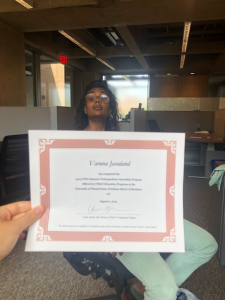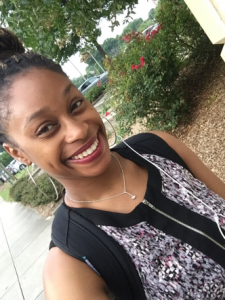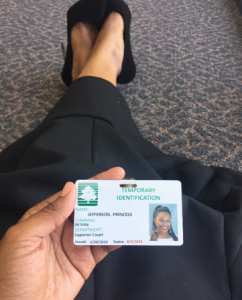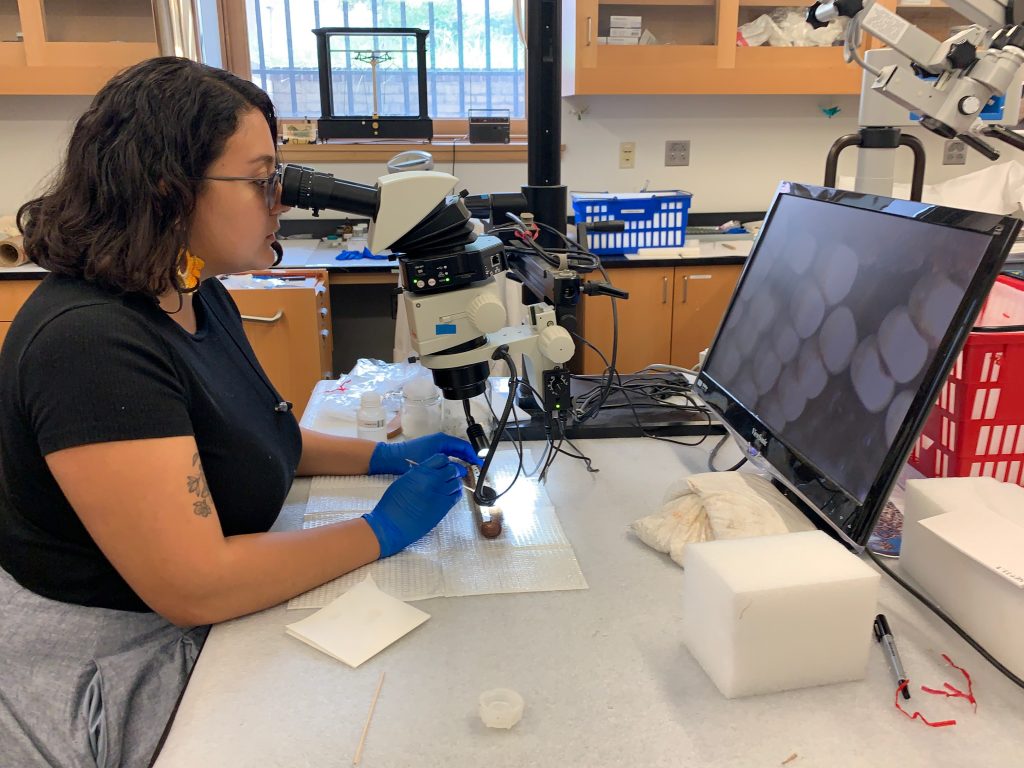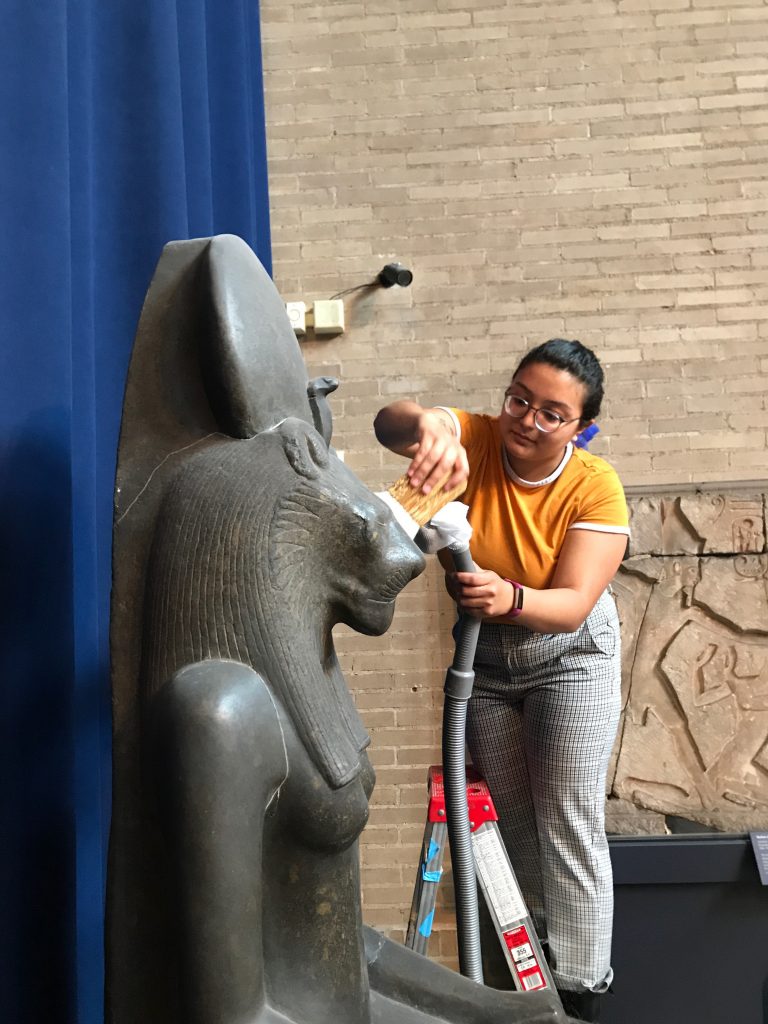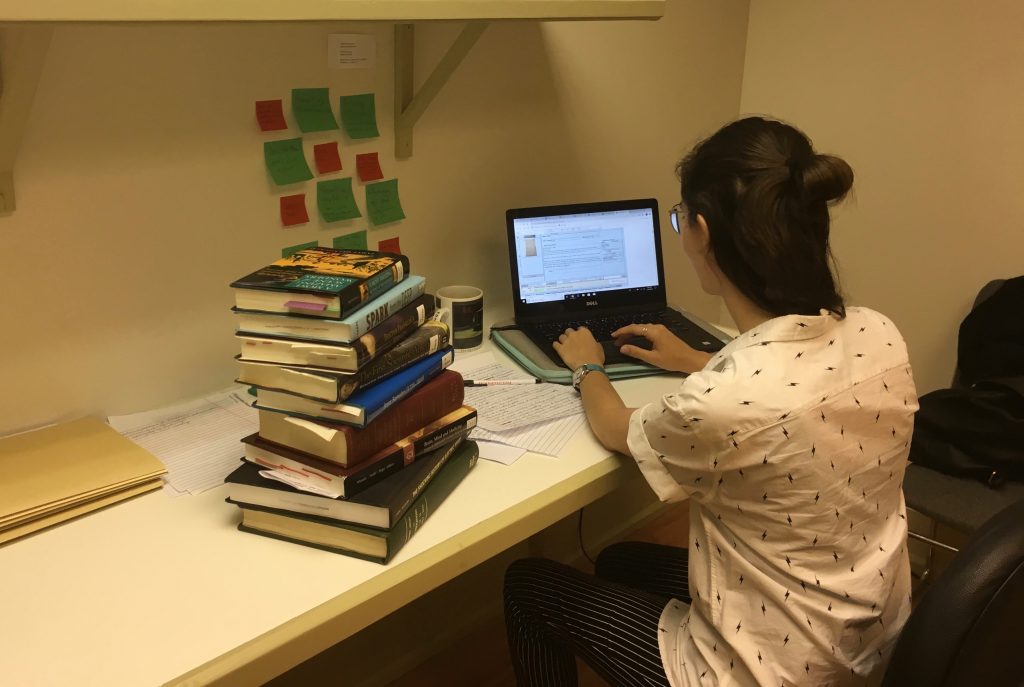Name: Synthia Feng
Class Year: 2020
Major: Linguistics
Hometown: Changzhou, China
Internship Organization: Childhood Bilingualism Research Center
Job Title: Junior Research Assistant
Location: Hong Kong
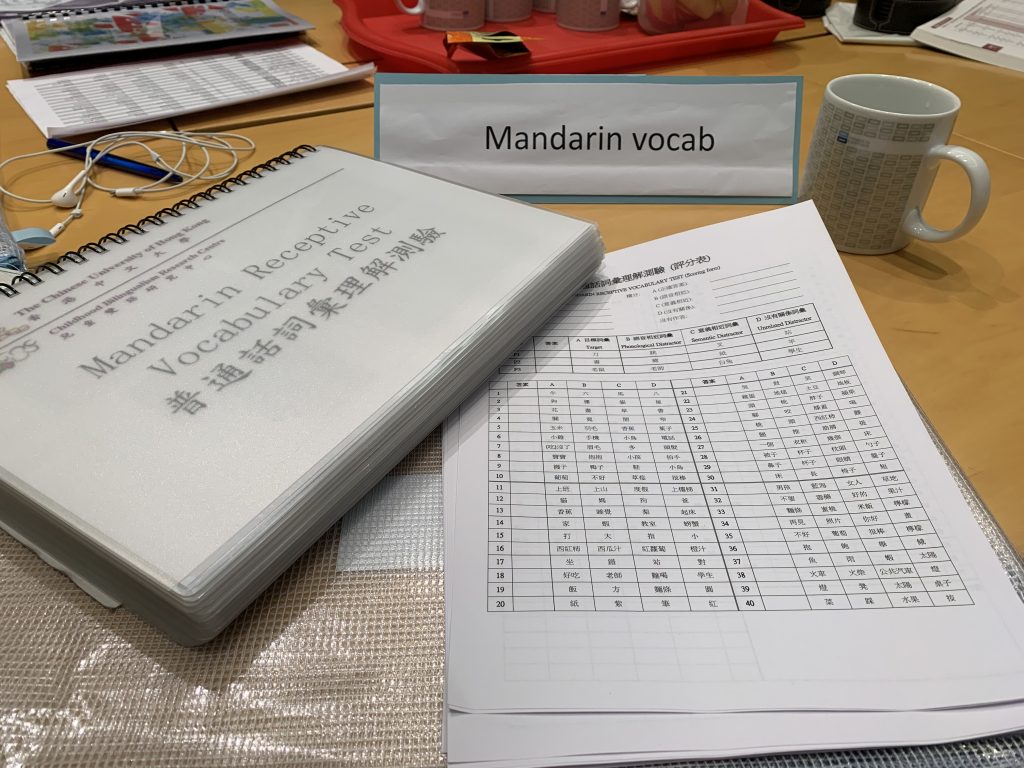
What’s happening at your internship?
I am working as a junior research assistant at Childhood Bilingualism Research Center, which is affiliated under the Chinese University of Hong Kong. We are currently working on several projects at one time. In the past week, we have been doing intensive fieldwork at a local kindergarten, which offers bilingual curriculum, including Mandarin, Cantonese and English. We did CRVT (Cantonese Receptive Vocabulary Test), MRVT (Mandarin Vocab Test), PPVT (English Vocab Test) and WPPSI (working memory test) to Class 2019 (mainly kids of 6 years old). Later we shall input all results and compare them to the same group of children’s test results two years ago in order to monitor and analyze their progress in language learning. Also, we are preparing English educational materials for another projects that will look into the language learning process of children from low SES. We are making English educational videos for them to watch in a 10-month period and then we will test their English level both before and after this time period and evaluate their progress. Other than the two main projects, we are also transcribing adult-child interaction videos, which will later be added to the online corpus of the research center.
Why did you apply for this internship?
I was interested in close, hands-on experiences in a research setting outside of the classroom. I thought that it would be helpful for me to make decisions on my future career path, whether I would be interested enough to do academics and research or whether it would be better to get a job in a company.
Also, when I talked to my friend, Ariel, who interned there as well, she acknowledged that she had some really good experiences with all the people in the research center and she learned a lot from her time there. She especially addressed that this research center does provide tutorials of testing materials and equipment, which are very useful and I believe important to add on to my resume.
Living in a new city? What has that experience been like for you?
It has been pretty nice so far living in Hong Kong. I am renting an apartment with two other girls, who are doing master’s degrees in the Chinese University of Hong Kong and knows the city and the surroundings of the apartment pretty well already. So all I did is to ask, whenever I had questions about living here.
Public transportation in Hong Kong is definitely something I have to get used to, especially when the bus is more convenient than subway, but the amount of buses available here is ridiculous. The worst of all is that some small buses only stop whenever a passenger presses the “stop” button. For someone who is not familiar with that bus route, it is very inconvenient and scary because it is very likely that you get off earlier or later than necessary.

